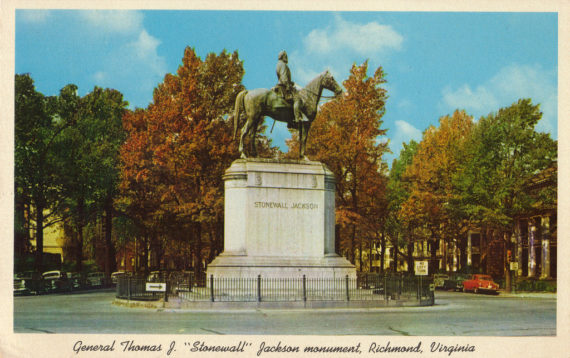
There’s something pernicious with the New York Times’ 1619 Project and its inversion of early Virginia colonial history. The colony of Jamestown isn’t a story of bravery and resilience in the face of disease and death. The House of Burgesses, founded in 1642, is not important as the first bicameral elected assembly in the American colonies. The Old Dominion of the late eighteenth century is not remarkable for providing a perhaps unparalleled number of great statesmen in the likes of Washington, Jefferson, Madison, Monroe, and Mason. No, says 1619 Project creator Nikole Hannah-Jones — Jamestown and the leaders of the House of Burgesses ushered in a slavocracy that marred the Commonwealth’s legacy; Virginia’s Revolutionary generation was motivated primarily by their desire to preserve the institution of slavery.
Welcome, then, is National Association of Scholars President and former Boston University professor Peter W. Wood’s 1620: A Critical Response to the 1619 Project. Wood’s short book is both a rebuttal of the major theses of the New York Times’ revisionist history and the proposal of a different historical event as essentially formative for American political and social identity. It was not the arrival of the “White Lion” at Point Comfort bearing about twenty Angolan-born slaves — marking the beginning of black slavery in the English North American colonies — that is to be understand as “the country’s very origin.” Rather, it is the November 11, 1620 signing of the Mayflower Compact, a two-hundred-word document, by forty-one Englishmen. The signers pledged, “for the Glory of God, and advancement of the Christian faith,” to “covenant and combine ourselves together into a civil body politic.” And, in Massachusetts, they did.
Wood is pretty effective at demolishing the major premises and arguments of the 1619 Project. The first of these has to do with the beginning of slavery in North America, which truth be told, long predates European arrival on the continent. Indigenous populations “had been enslaving one another, as far as we can tell, from time immemorial, and forced labor was far from the worst of it.” Torture, cannibalism, and ritual sacrifice were all common in pre-European America (as it was, one should note, on the African continent, as well). Indeed, Native peoples on the Florida coast in 1529 even enslaved shipwrecked Spaniards.
Nor is the fate of the enslaved blacks who arrived in Virginia in 1619 what the New York Times contributors would have us believe. Many black captives, following a period of indenture, were freed. One such freed black man, Antonio, “renamed himself Anthony Johnson, got married, raised children, became a plantation owner himself, and acquired African slaves of his own.” He even successfully sued a white neighbor in a local Virginia court! In the early decades of the Virginia colony, whites and blacks legally intermarried. Though Virginia’s laws and customs eventually tightened against black liberty — largely a result of demand for labor to support the Old Dominion’s tobacco cash crop — Hannah-Jones’ story is false and simplistic.
The 1619 Project’s claim that the American Revolution was fought to protect slavery is equally fallacious. Ever eager to pick on Virginia, Hannah-Jones argues that Dunmore’s Proclamation — signed in 1775 by the royal governor of Virginia and promising freedom for slaves of American revolutionaries who fled their owners and joined the British — was a fundamental turning point in persuading the colonists to rally to protect slavery. Yet, as prominent historians have noted, the evidence for this simply isn’t there. Pulitzer Prize winning historian Gordon S. Wood argues that “the revolutionary movement was already well along in Virginia” when Dunmore’s Proclamation was issued. Nor is there any record that Virginians were particularly concerned by the 1772 Somerset decision in the United Kingdom that outlawed chattel slavery. Moreover, the British Empire had no plans to abolish slavery across the colonies. Indeed, some of its most profitable colonies, like Jamaica, were slave-based economies.
The same erroneous historical reasoning is behind the 1619 Project’s assertion that slavery was the economic engine of the entire antebellum American capitalist economy. Southern slavery was not particularly technologically innovative, notes Michicgan State University professor W.B. Allen. University of Chicago fellow John Clegg also observes that King Cotton was actually less than 5 percent of the overall American antebellum economy. William L. Anderson, a professor of economics at Frostburg State University repudiates the claim that violence made slavery “super-productive” as too “ludicrous” to be taken seriously. Indeed, economic historian Phillip W. Magness has exposed the “fundamental accounting error” underlying the specious assertions that slavery was the preeminent capitalist cash-cow of nineteenth-century America.
At some point one has to wonder how the 1619 Project even got off the ground. The answer to that question is that the New York Times was never interested in doing real history, but exploiting Americans’ historical ignorance to promote a socially-transformative ideological agenda. Even as scores of prominent American academics voiced their frustrations, concerns, and outright anger at the 1619 Project’s dangerous errors, the New York Times’ editorial leadership has hid behind shoulder-shrugging comments. “Historical understanding is not fixed,” demurs editor-in-chief Jake Silverstein. “It is constantly being adjusted by new scholarship and new voices. Within the world of academic history, differing views exist.” One might just as well say the same thing about every single historical claim in the 1619 Project’s ideological initiative!
Looking for academic or journalistic integrity and consistency in the 1619 Project is fruitless. In July 2020, Hannah-Jones declared: “I’ve always said that the 1619 Project is not a history. It is a work of journalism that explicitly seeks to challenge the national narrative.” In later tweets she doubled down: “It never pretended to be history.” Yet this same journalist had constantly presented the 1619 Project as history. To cite but one example, during an earlier interview on NPR’s Fresh Air, Hannah-Jones noted the importance to “tell this 400-year sweep of history of people” and “get this right.”
If it is not history, what, exactly, is the 1619 Project? Hannah-Jones has at least made this clear. At the end of an interview on the Karen Hunter Show in December 2019 Hannah-Jones admitted, “My ultimate goal is that there will be a reparations bill passed.” She elsewhere told the Chicago Tribune that “the project is an argument for reparations.” Reparations, she often declares, is “what is owed,” including in a June 2020 New York Times Magazine cover story.
And boy, is this ideological enterprise already paying dividends to foster support for reparations. Curricula informed by the 1619 Project are already being taught in many American school districts and universities. At the time of Wood’s book, at least five school systems, including that of Winston-Salem, North Carolina, have adopted the 1619 Project. In my home in the Commonwealth of Virginia, educators have rolled out a state-wide revised social studies pedagogy informed by the Southern Poverty Law Center’s “Teaching Hard History” curriculum, which shares many of the same premises and educational objectives as the 1619 Project.
Besides the obvious fact that this whole educational initiative is based on falsities, misrepresentations, and exaggerations is the stomach-churning self-promotion of it all. American public-school students will likely never know the name of a single prominent American historian, living or deceased, but they damn well will know the name of pseudo-journalist Nikole Hannah-Jones. “What examples of hypocrisy in the founding of the U.S. does Hannah-Jones supply?” asks one 1619 Project lesson plan. “Why do you think Hannah-Jones consistently refers to what are commonly known as ‘plantations,’ such as Monticello, by the term ‘forced-labor camps’ instead?” We’re not just re-educating our youth in critical race theory, but also that Hannah-Jones is God’s greatest gift to the field of historical study.
This ultimately brings us back to the legacy of the Old Dominion. The Founding Fathers of Virginia were by no means perfect — indeed, practically all of them were slave-owners whose wealth was to a significant degree attributed to the coerced labor of the blacks who worked their plantations. Yet these men’s positive influence on America is hard to exaggerate. Separation of powers, the promotion of religious liberty, and the very military success of the American Revolutionaries among many other great accomplishments, are all attributed to these Virginians. This is a historical fact.
“The study of history has standards and approved methods,” explains Wood. “It is a discipline. It is also the way in which our civilization thinks itself into existence. By means of history, we recognize how we came to be, what we are, and why that matters.” Making slavery the centerpiece of American history isn’t just erroneous, it is fundamentally damaging to American social and civic unity. It disrupts and disintegrates, and will undoubtedly “revitalize racial antagonism — in both directions.”
Hannah-Jones and the New York Times have offered us a pseudo-history that ignores the truth that it was the West, and even to a great degree America, that first disparaged and sought to end slavery. Indeed, Vermont was the first government in world history to abolish slavery in its constitution. Hannah-Jones and her collaborators are indifferent to such facts, if they even know them. They’re too busy hijacking the American political experiment and trying to drive it into a ditch for their own narrow, self-serving goals. Southern educators and thinkers must beware of these ideologues, whose project is inimical to what is left of our national civic cohesion, one formed by both whites and blacks, Southerners in Virginia and Pilgrims in Massachusetts. If we don’t stop this fundamentally anti-American propaganda campaign, it will, in time, destroy us all.






